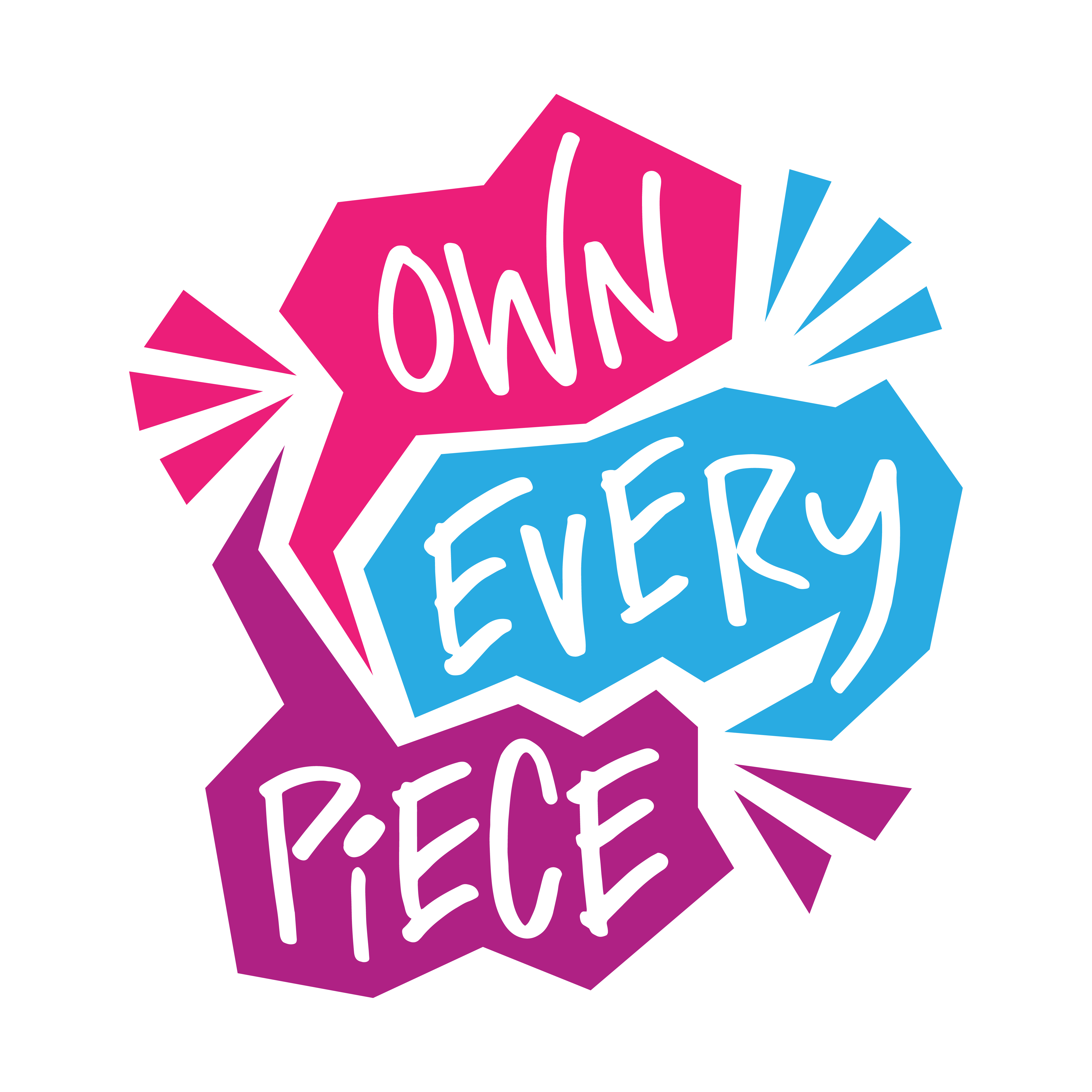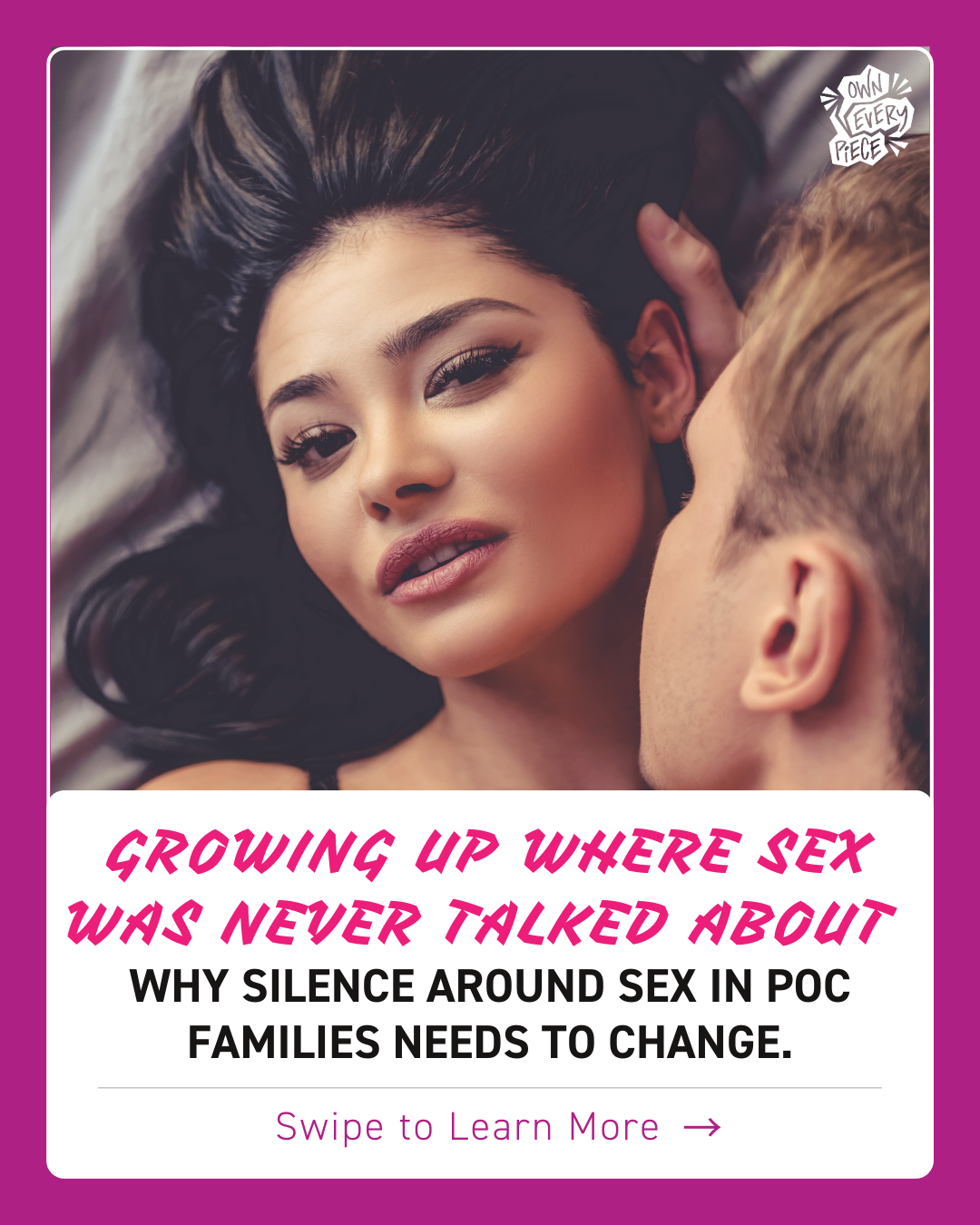I’ve never had a conversation about sex with my family. Not once. Growing up in a Middle Eastern, Muslim household, sex simply wasn’t something we talked about. Between cultural expectations and religious beliefs, it was almost like the topic didn’t exist. If anything remotely related to sex came on TV, things would get awkward right away, or someone would rush to change the channel. In our home, if it wasn’t spoken about, it meant it wasn’t happening.
In Islam, sex is something reserved for marriage, and my family took that very seriously. Talking about it was off-limits. The expectation was that you would wait until you were married, so there was no reason to bring it up before then. That meant I was left to figure everything out on my own.
The first time I ever heard anything about sex was in fifth grade, and it wasn’t from a parent, teacher, or trusted adult. It was from a classmate who decided to tell me what porn was. That was my introduction to the entire concept of sex. No explanation about healthy relationships, no mention of consent, protection, or what it means to care for your body. Just a kid telling me about porn. I remember feeling disturbed because I had no idea what he was even talking about. Looking back, it’s honestly kind of wild that’s how it all started for me.
Because we never talked about it at home, I grew up thinking sex was something secret and probably shameful. I believed there was something wrong with me for even being curious. I didn’t realize it at the time, but silence and shame show up a lot in POC families when it comes to sex. It’s treated like a taboo topic, and in a way, that keeps everyone in the dark.
It took me years to start unlearning the things I grew up believing. I had to teach myself that wanting to understand my body doesn’t make me bad. Talking about sexual health isn’t something to whisper about or hide. I learned through friends and social media that birth control is normal, that STI testing is a part of taking care of yourself, and that asking questions is smart.
Now I see sexual health for what it really is: just another part of overall health. It’s not dirty or embarrassing. It’s something everyone deserves to understand, whether they plan on having sex or not. I wish I had known that sooner.
If you grew up like me, in a strict or religious family where these conversations didn’t exist, I want you to know it’s okay to ask questions. It’s okay to care about your body and make choices that protect it. You shouldn’t feel guilty for wanting to learn how your body works. Even if sex isn’t on your mind right now, it’s still important to be informed. And if a healthcare provider ever makes you feel judged for wanting to understand your health, that’s on them, not you.
If you’re not sure where to start, @browngirltherapy on Instagram talks a lot about unlearning shame in immigrant and POC communities. Scarleteen.com is also a great resource for straightforward, no-judgment info on everything from consent to birth control to navigating awkward conversations. It can feel overwhelming at first, but learning is how you take your power back.
At the end of the day, your health belongs to you. Being curious and wanting to be prepared doesn’t make you wrong or bad. It makes you someone who cares about their own body. And that’s something to be proud of.
Helpful Resources:
Written by: Tulin Nanneh

